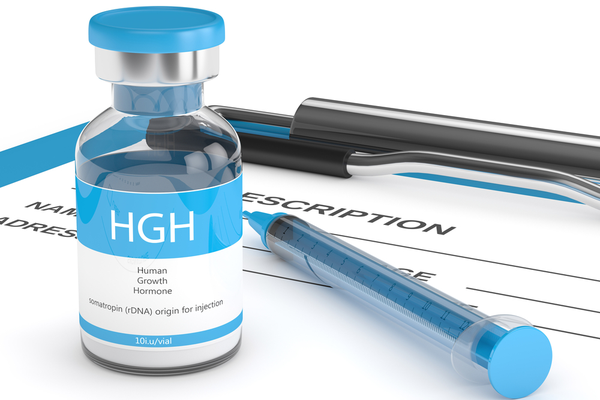If you’re considering HGH and are curious how the substance will affect your mental health, keep reading. Before a woman gets her monthly period, she goes through hormonal highs and lows, which affect their emotional and cognitive functions. Some people may find the woman “moody”. Such statements are especially true during their menstrual cycles or the life stage known scientifically as menopause.
However, many medical professionals do concur that specific hormones can have a significant influence on emotional and cognitive functions. One such substance is human growth hormone, which is often abbreviated as HGH. This chemical enjoys a favorable track record helping individuals stricken with low levels of somatotropin, which impacts numerous routine cognitive capabilities individuals often seldom offer a second thought. You can visit any HGH therapy clinic in Miami where trained medical experts will explain why HGH is as important to adult health as it is to children.
The mental health of persons with diminished concentrations of somatotropin, another medical term for HGH, can be severely compromised and manifest through symptoms such as:
- Limited focus and the inability to multitask
- Feeling fatigued upon awakening
- Difficulty winding down
- Memory struggles
- Experiencing anxiety, mood swings
- Social isolation
- Depression
These are the alterations one may notice. In actuality, however, other more serious cognitive problems could also occur in the brain’s deep reaches and are capable of exercising detrimental influences for the remainder of an afflicted subject’s life.
The brain is comprised of abundant quantities of HGH receptors. That said, these structures operate only when said hormone attaches to them. When said events do not occur, deleterious consequences could result.
How does low HGH affect emotional health?
Researchers have identified a strong correlation between hormones and emotional well-being. Medical professionals and mental health experts maintain that this connection begins when discussing the substance’s capacity to elevate brain concentrations of chemicals like dopamine and G-endorphins.
Dopamine is known to induce calmness, which lessens feelings of tension and the associated stress-related physical, mental, and emotional manifestations. B-endorphins heighten mood and act as natural anti-depressive agents.

From an indirect standpoint, HGH plays a crucial part in ensuring individuals obtain adequate amounts of sleep. Low systemic quantities precipitate the body to secrete increased levels of a substance known as cortisol.
This hormone lessens bodily concentrations of vital hormones like testosterone and HGH and diminishes the effectiveness of said substances. Moreover, cortisol is labeled a stress hormone. This means the chemical tenses the body for extended periods. Additionally, cortisol keeps the mind racing. These developments render relaxation and sleep far more difficult.
Furthermore, cortisol fosters elevated systemic production of ghrelin. This substance is affectionately referred to as the hunger hormone because it stimulates the appetite and heightens one’s cravings for sugary foods known to provide quick bursts of energy. Ergo, stricken subjects often eat during the later evening hours, which produces high quantities of sleep-limiting energy spurts.
HGH benefits for cognitive functions
Researchers and healthcare providers agree that the cognitive benefits of HGH are the most important attributes. One could not responsibly tout the substance’s beneficial properties without highlighting how it reduces one’s risk of serious mental health maladies like dementia and Alzheimer’s disease and expedites the recovery process of those who have sustained traumatic brain injuries.
Additionally, HGH positively influences brain function by:
Promoting Neurogenesis
Neurons are brain cells. Therefore, neurogenesis is the creation of new brain cells. This process is especially critical for persons with traumatic brain injuries.
Increasing The Production Of Protease Inhibitors
Protease inhibitors are substances designed to protect the type of brain cell death commonly witnessed during the normal aging process.
Eliminating Free Radicals
Free radicals are abnormal systemic particles holding the capacity to damage body cells and tissues, particularly neurons. As free radicals accumulate and progress, they activate detrimental chemicals calls proteases, which are enzymes specifically designed to damage cells.
Stimulating Dendrite Growth
Dendrites are brain components pertinent to helping establish connections between brain cells. Adequate quantities of HGH are needed to ensure these structures stand in abundance and operating optimally.
What does science say?
Scientific studies have concluded that many individuals with declining HGH levels also experience significant emotional and cognitive issues. Moreover, these same investigations have found that, when HGH is supplemented to said subjects, many witness positive outcomes including:
- Heightened concentration and memory levels
- Increased verbal learning capabilities
- The capacity to process complex concepts at a more expedient rate
- Greater ability to resist age-related cognitive decline
In addition, the researchers concluded that brain health depends on a person’s ability to maintain adequate levels of growth hormone. Those who are deficient need to take an active and aggressive stance to correct said anxiety before serious, potentially life-changing problems emerge.
Read Also:
Hugging: What 2020’s Been Missing
How to Survive Infidelity in a Fresh Marriage?
Seasonal Affective Disorder Explained and Ways to Cope with It
How Fertility Is Affected by Stress and How You Can Combat It
What Does It Mean When Someone Dreams About You in a Sexual Way?


